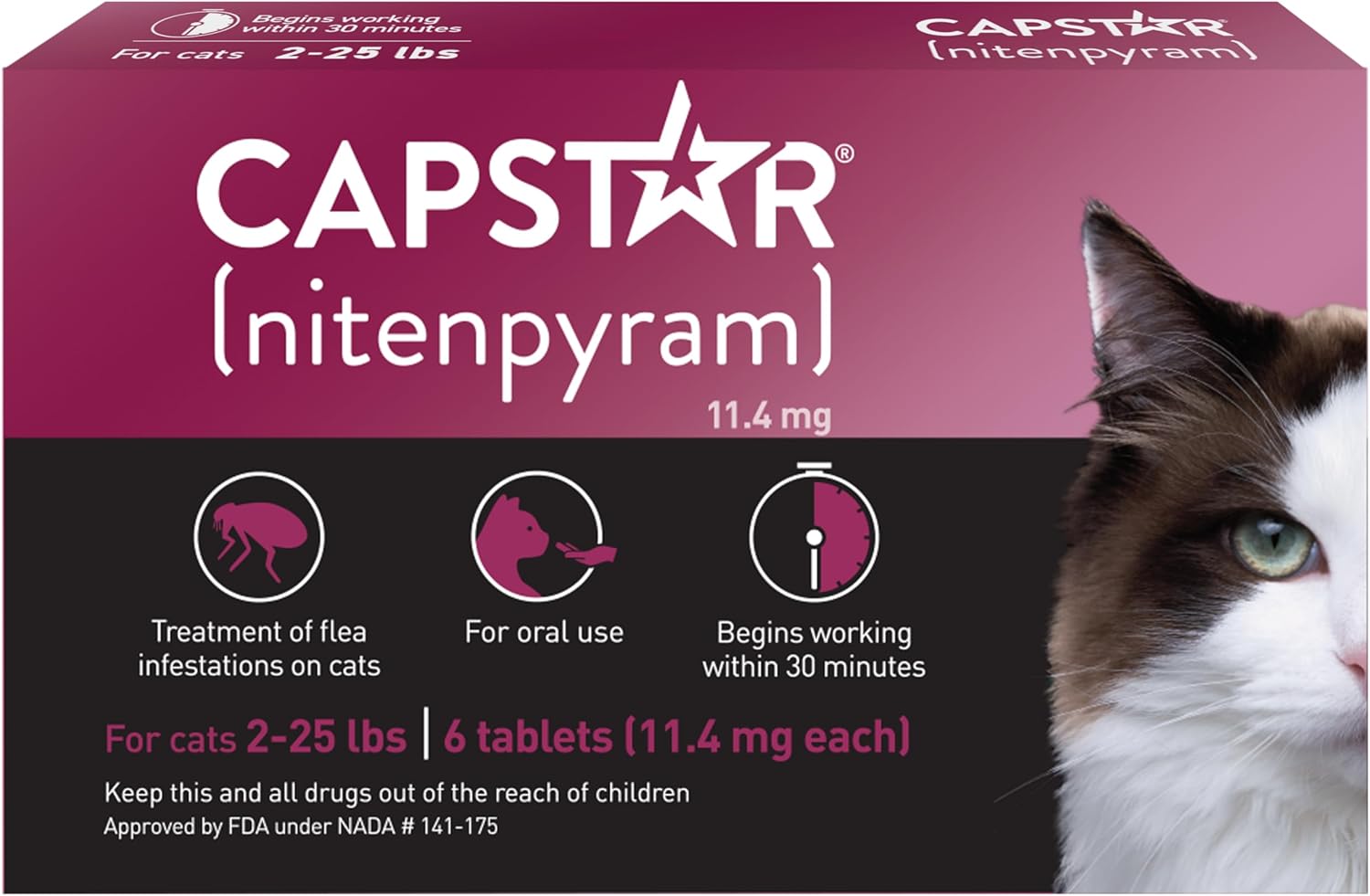






Price: $39.98 - $38.12
(as of Apr 06, 2025 19:12:40 UTC - will apply to the purchase of this product.">Details)
The Best Flea Medicine: Your Ultimate Guide to Keeping Your Pets Flea-Free
Introduction
Fleas are not just an annoyance for our beloved pets; they can lead to serious health issues if not dealt with promptly. Finding the best flea medicine is crucial for pet owners looking to protect their furry friends. In this article, we will explore various aspects of flea prevention and treatment, focusing on long-tail keywords that will help you make informed decisions. Whether you're searching for flea medicine for cats or dogs, or looking for natural alternatives, we've got you covered. Let’s dive into the world of flea management and find the best solutions for your pets!
What is the Best Flea Medicine for Dogs?
When it comes to choosing the best flea medicine for dogs, there are numerous options available. Topical treatments, oral medications, and flea collars all serve different purposes and have varying effectiveness. Topical treatments often provide quick results, killing fleas on contact, while oral medications may offer longer-lasting protection.
Key Ingredients to Look For
When selecting flea medicine for dogs, check for proven ingredients like fipronil, imidacloprid, and selamectin. These components are known for their efficacy in eliminating fleas quickly. Always consult your veterinarian to find the best product suited for your dog's specific needs.
How to Choose Flea Medicine for Cats?
Flea medicine for cats can be a bit different from that for dogs, mainly due to the sensitivity of feline health. Cats often react negatively to certain chemicals that are safe for dogs. Therefore, it’s crucial to choose a product specifically formulated for cats.
Top Recommendations
Consider products containing spinosad or nitenpyram, which are safe and effective for cats. You can find spot-on treatments that are easy to apply and provide long-lasting protection. Always read the label and ensure that the product is designed for cats to avoid any harmful reactions.
Natural Flea Remedies: Are They Effective?
Many pet owners are looking for natural alternatives to commercial flea medicines. While some natural remedies can be effective, it’s essential to approach them with caution.
Common Natural Solutions
Ingredients like neem oil, diatomaceous earth, and apple cider vinegar are often touted as natural flea deterrents. Neem oil can disrupt the life cycle of fleas, while diatomaceous earth can help eliminate fleas by dehydrating them. However, it's important to note that natural solutions may take longer to show results compared to traditional medicines.
How to Apply Flea Medicine Effectively?
Applying flea medicine correctly is just as important as choosing the right product. Improper application can lead to reduced effectiveness and potential harm to your pet.
Step-by-Step Application Guide
- Read the Instructions: Always follow the manufacturer’s guidelines for application.
- Choose the Right Spot: For topical treatments, apply the medicine directly to the skin, typically between the shoulder blades or at the base of the neck.
- Avoid Bathing: Try not to bathe your pet 48 hours before or after applying topical treatments to ensure effectiveness.
- Monitor Your Pet: Keep an eye on your pet for any signs of irritation or adverse reactions after application.
How Often Should You Treat Your Pet for Fleas?
The frequency of flea treatment can vary based on the product used and the level of flea infestation in your area.
General Guidelines
Most topical treatments and oral medications provide protection for 30 days. However, in areas with heavy flea populations, you may need to treat your pet more frequently. Always consult your vet for personalized recommendations based on your location and your pet's health.
The Importance of Flea Prevention
Preventing flea infestations is far easier than treating them. Proactive measures can save you from the headache of dealing with an infestation.
Recommended Preventative Measures
Incorporate regular flea treatments into your pet's routine and consider using flea prevention collars or environmental sprays. Additionally, keeping your home clean, vacuuming regularly, and washing your pet's bedding can significantly reduce the likelihood of fleas taking hold.
Dealing with a Flea Infestation at Home
If you find yourself facing a flea infestation in your home, it’s crucial to act quickly. Fleas can multiply rapidly, making early intervention key.
Steps to Take
- Treat Your Pets: Start with giving your pets the best flea medicine suited for them.
- Clean Your Home: Vacuum carpets, rugs, and furniture. Wash pet bedding in hot water to kill any fleas or eggs.
- Use Flea Sprays: Consider using flea sprays or foggers designed for indoor use to eliminate fleas from your living space.
Conclusion
Finding the best flea medicine for your pets is vital for their health and comfort. Whether you choose traditional treatments or explore natural remedies, understanding how to apply and maintain flea prevention is key. Remember, a proactive approach will keep your pets flea-free and happy. With the right knowledge and tools, you can effectively manage flea issues and enjoy a peaceful, pest-free home. Always prioritize your pet's health by consulting with a veterinarian before making any changes to their flea treatment routine. Keep your furry friends safe and comfortable by choosing the best flea medicine that works for them!
CAPSTAR (nitenpyram) starts killing adult fleas in just 30 minutes
With one dose of CAPSTAR, you can watch the dead fleas fall off your pet
If your pet gets reinfested with fleas, simply give another dose as often as once a day
CAPSTAR is a fast, effective cat flea treatment that is available over the counter
CAPSTAR Oral Flea Treatment for Cats (11.4 mg) is safe for cats and kittens 4 weeks and older that weigh 2-25 pounds
